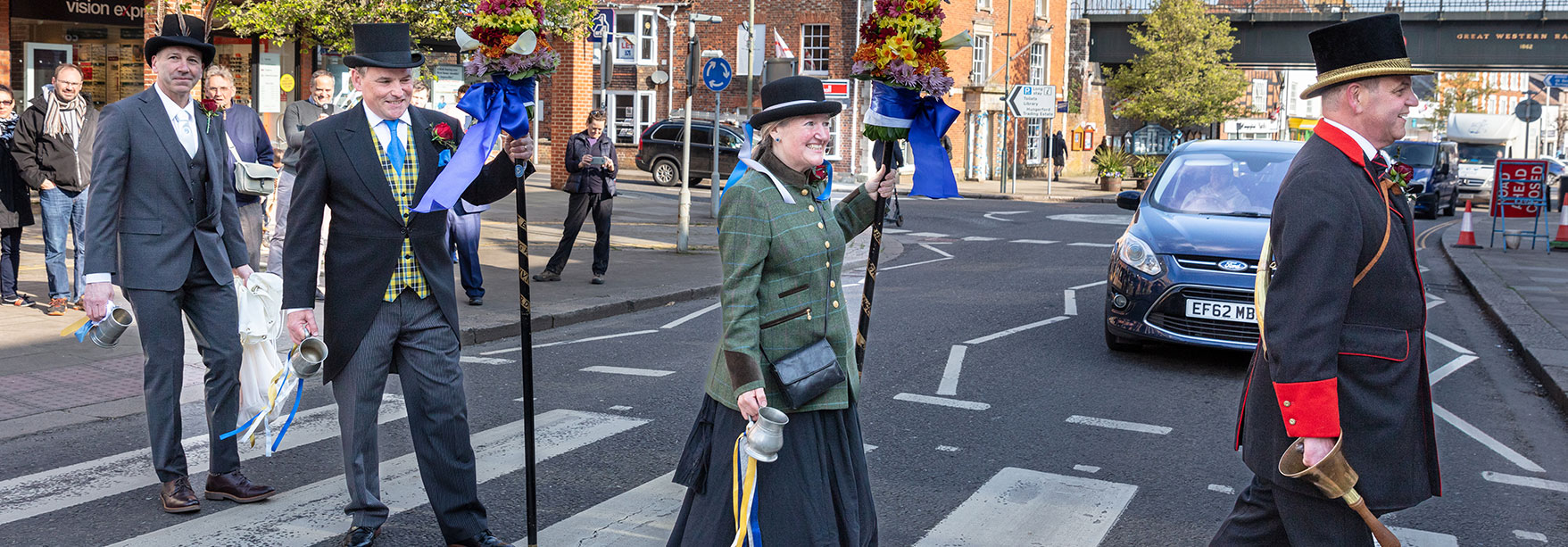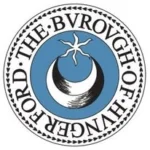Once celebrated throughout the country The Town and Manor of Hungerford’s most important event, Hocktide, held on the second Tuesday after Easter and first recorded in the twelth century was an important holiday and rare day off for the villeins from working the land and allowed them to let their hair down after Lent.
Although there were many regional variations a common theme is the collection of pennies by various means including the waylaying of travellers through the town and demanding a ‘ransom’ with the proceeds going to the parish church. On Hock Monday the men would chase the women, trussing them up and demanding a kiss before they were released. On Hock Tuesday the roles were reversed and by many accounts the woman reaped their revenge with gusto!
But there was also a serious side to Hocktide, the collection of rents by Tithing men, the holding of manorial courts to appoint officers and deal with the administration of the town.
The festivities were eventually banned by Henry VIII, and though reinstated in Elizabethan times were largely forgotten by the end of the seventeenth century, however the tradition persisted in some areas until the ending of the Manorial court system in 1922.
So how come Hungerford alone still celebrates Hocktide and holds its Hocktide Court and Court Leet?
The feoffees of the Town and Manor of Hungerford had governed the town for many hundreds of years until in 1853 the Charitable trusts act threatened their well established form of local government. The trustees of the day dealt with this by ignoring it for 50 years until in 1908, under threat of imprisonment, they negotiated a deal which allowed them to retain all their assets and run the Town and Manor as a registered charity for the benefit of the inhabitants and a separate parish council was created.
One of the most important responsibilities that the trustees were charged with was protecting the ancient traditions of the town and the rights of the commoners and so our most important event which was the holding of a Hocktide Court and the festivities that went with it persisted, however, 1922 finally saw the abolishment of the manorial court system. The trustees argued that they would not be able to discharge their duties under the Charitable scheme if they were not allowed to hold the Hocktide Court and Court Leet and to appoint the various officers and that is why The Administration of Justice Act of 1977 contains a very short list of Towns and organisations still permitted to retain the Manorial court system in some form and why Hungerford is now the only place in the country where these traditions are still upheld.






